Understanding Resistors on Evan Designs LED Lights
Resistors: what are they, how do they work and what resistors are the best choice for my model project?
In this article we will learn more about resistors to answer all of these questions and more! This is the second article in Evan Design’s electricity series. If you haven't read our first article What is Voltage? It may be a good place to start to understand some of the terminology we use in our mission to understand resistance.
We will be using an Evan Designs battery operated light kit for our example circuit. The 9 volt battery and Chip LED light create a circuit; a closed path that allows for electricity to flow from one point to another. The current is the rate at which electrons flow through our circuit. See Figure A for a picture of our example circuit.
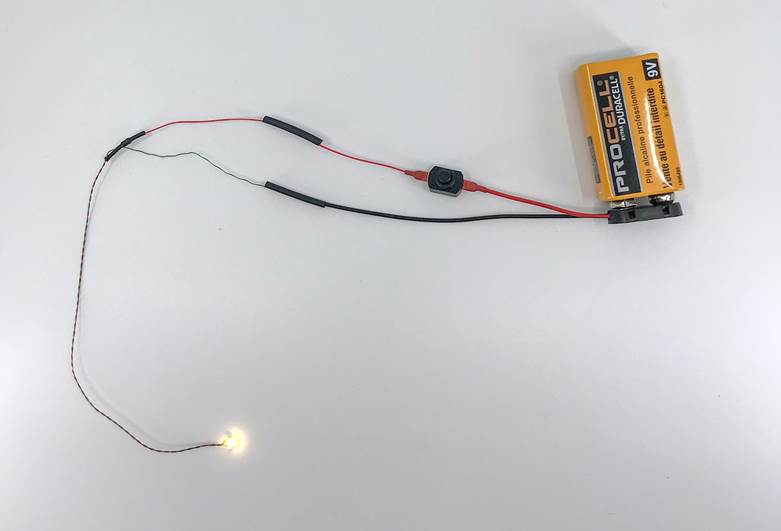
Figure A : Warm white Evan Designs Chip LED connected to a 9 volt battery
Without any added resistor our chip light can work off of 2-3 volts, yet in our battery operated light circuit we have it connected to a 9 volt battery. The reason the light does not burn out is because we have added a resistor to our chip LED light making it a 9 volt LED. See Figure B for a photograph of a 9 volt resistor.
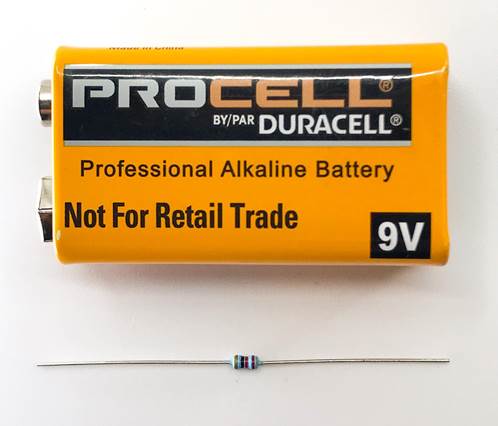
Figure B
Understanding Resistance
Let's start out with a simple definition; resistance is the measure of opposition to the flow of current in an electrical circuit (our LED light kit). We use Ohms to measure resistance, symbolized by the Greek letter Ω and derived from Ohm's law: where voltage= current x resistance. The higher the resistance, the lower the flow of current and the lower our voltage. The lower the resistance the higher the flow of current and the higher our voltage is. Resistors are small devices that let us carefully control the amount of current flowing through an electrical circuit.
Resistor Composition
There are two types of resistors, through hole or surface mount resistors. In this article we will be discussing through hole resistors and more specifically the metal film axial resistors used on Evan Designs mini hobby LED lights. Inside of these resistors a helix is cut through the ceramic core and it is filled with a thin resistive metal film. The thicker the metal film, the lower the resistance, and the thinner the film the higher the resistance. The ceramic core and plastic coating help insulate the resistor. A simple way to think about this is the current of electrons struggling to flow through the thin coils of metal film, effectively slowing down the current and lowering the voltage the small LED light at the end of our circuit receives. With a thicker metal film, the current will flow more more easily, resulting in a higher voltage delivered to our bright LEDs.
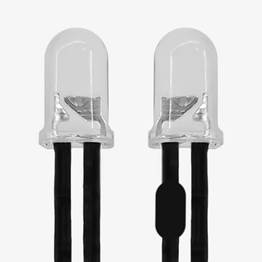
Figure C: Resistors on Evan Designs Bulb LEDs
The left single LED has no resistor making it 3 volt
The right single LED has a resistor making it 9 volt
Resistors on Evan Designs LEDs
The LED battery lights at Evan Designs are 2- 3 volt without resistors. Red, yellow and orange lights are 2 volts because they are at the beginning of the visible light spectrum and have a higher frequency. Due to this all of our 3 volt red, yellow and orange mini LED lights come with a resistor pre attached. Warm white, cool white, green, blue, pink and purple mini LEDs are lower on the light spectrum and have a lower frequency. This means that these colors of miniature lights do not need a resistor to work at 3 volts, such as the left LED picture above in Figure C.
When buying miniature LED lights from Evan Designs, you don't need to worry too much about resistors, we've already taken care of the confusing part for you. Simply match the voltage of the micro LEDs you buy to the voltage of your power source and we have included the correct resistors on your lights to make them work at the voltage you want!


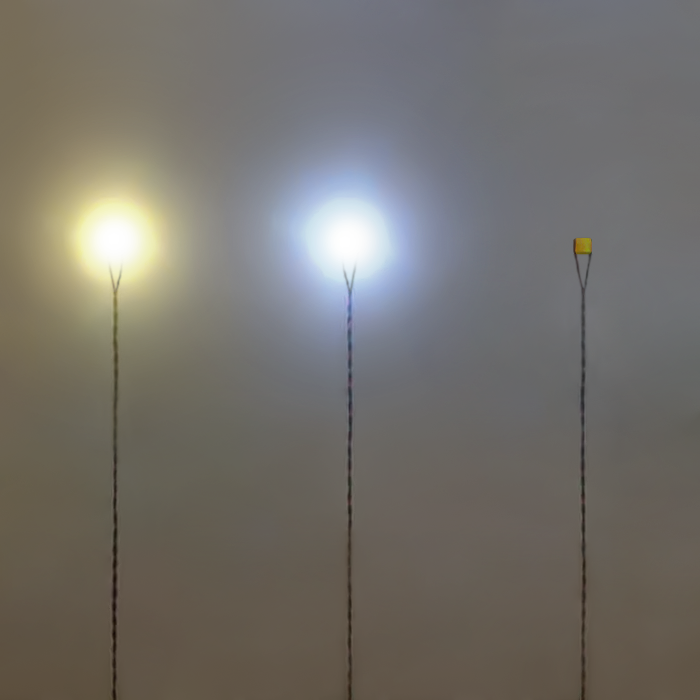
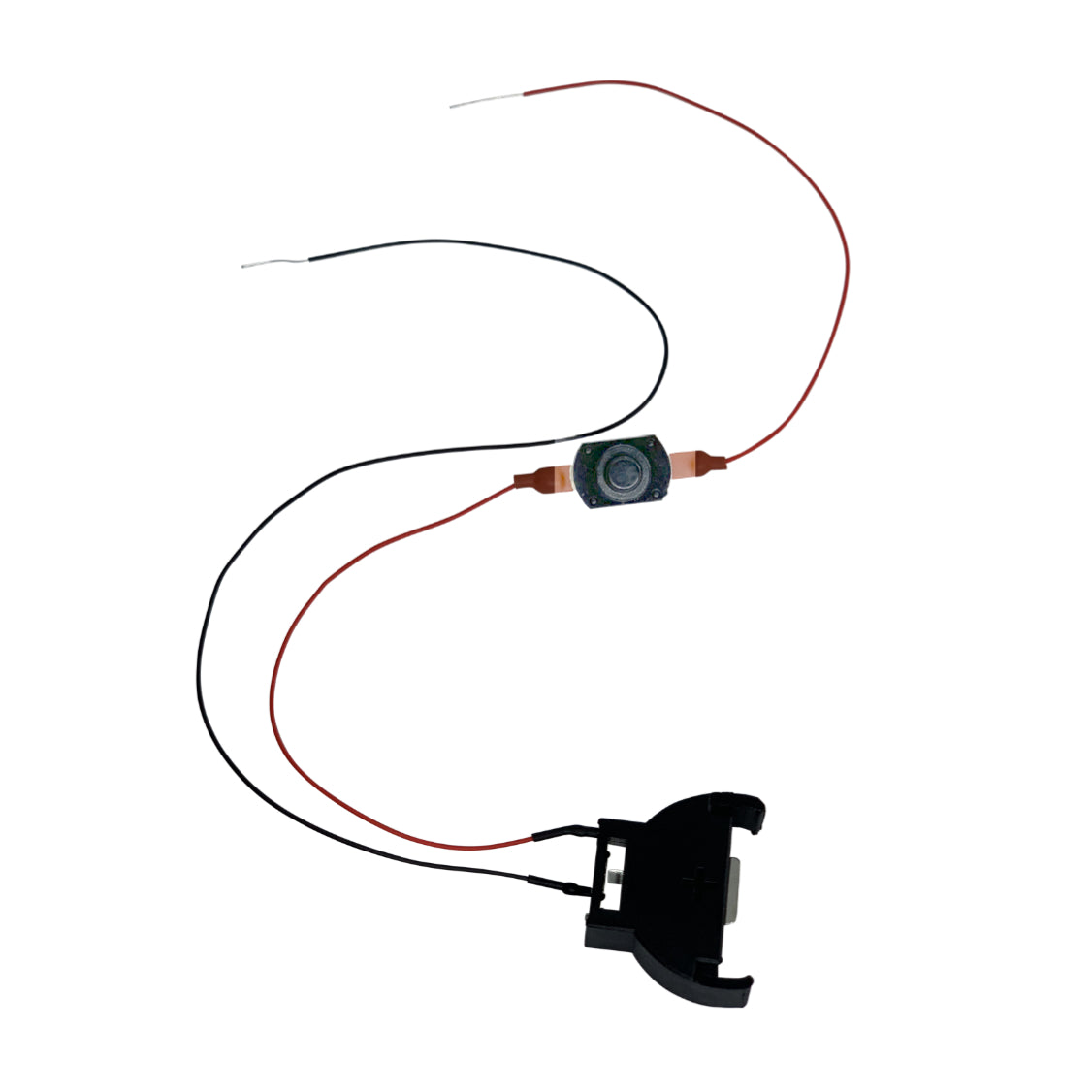


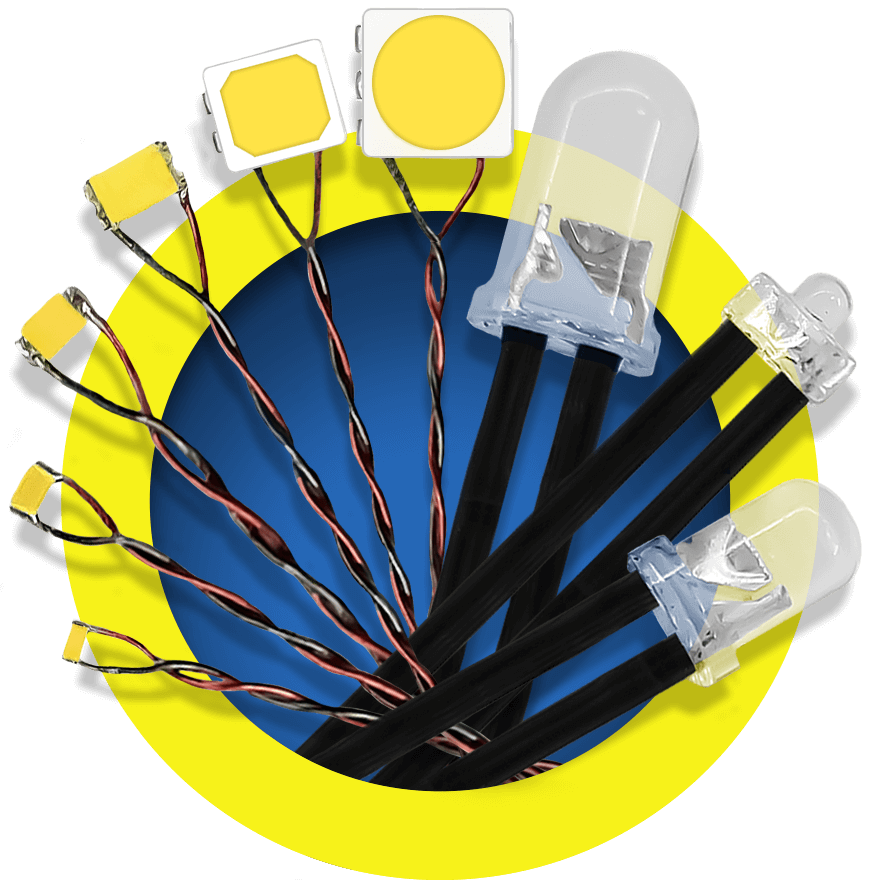

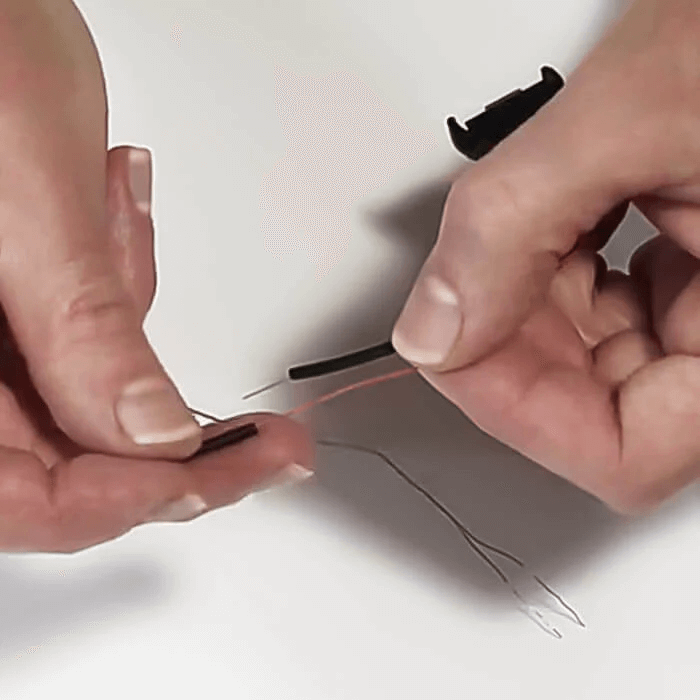

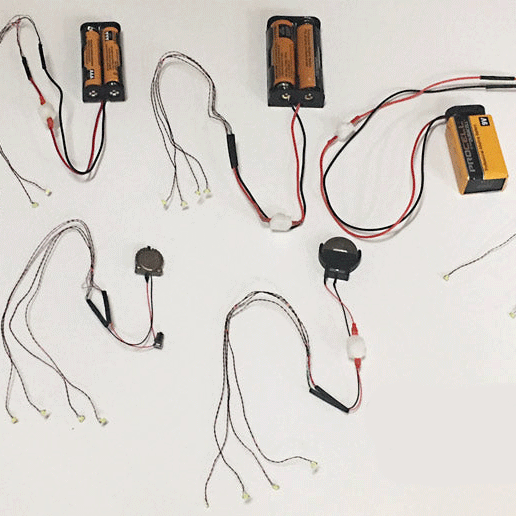

Leave a comment